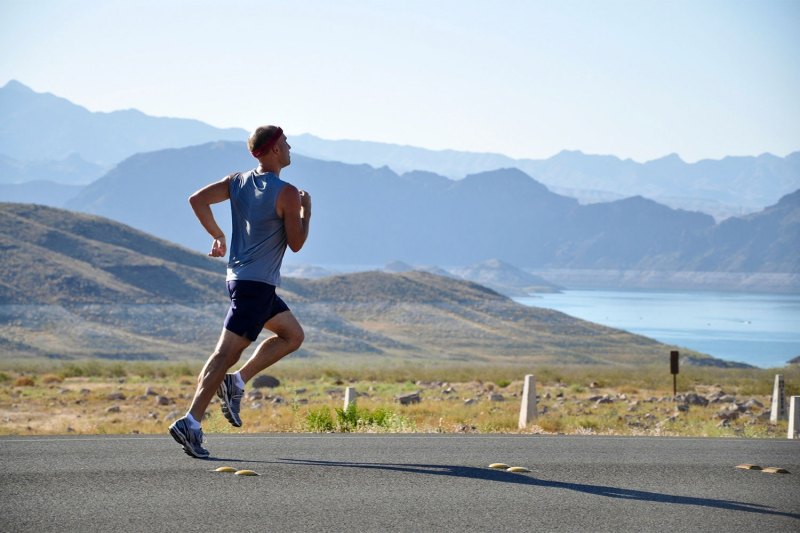Summer’s very much still here and hot as ever. With the world teeming with distractions right now, you might not be taking the proper care you should to stay hydrated and healthy as conditions swelter.
Heat stroke is real and can lay you out flat. Granted, this is not the summer of large music festivals and overflowing block parties — the kinds of venues that tend to cater to heat stroke. But that doesn’t mean the high temperatures can’t still wreak havoc on your body. In fact, with social distancing in force and solo trips more popular than ever, it’s important to know how to cope with heat on your own, in a variety of scenarios ranging from basic and preventative to more involved and dire.
Sports are still mostly sidelined, so this may be the first year in a while we don’t hear about football teams stalling practices due to heat stroke concerns. We’ve seen cooling breaks in European soccer, with league play creeping into the hotter summer months due to the pandemic delay. Sports aside, heat stroke remains a threat to anybody hanging out in the heat, whether you’re hiking vigorously or just knocking out some yard work.
As the Mayo Clinic suggests, the worst aspects of heat stroke (also called heat stress) coincide with your body temperature reaching or exceeding 104 degrees. Related side effects include nausea, confusion, slurred speech, vomiting, hurried breathing, headache, and flushed skin. It’s not uncommon to feel dizzy or even faint. You may also feel general fatigue or muscle cramps. Hallucinations can happen, too, and not the fun kind.
Symptoms can amplify when alcohol is involved or when you’re wearing too much in the way of clothing. Hydration is key and most of us simply aren’t drinking as much water as we should be. Adequate daily water intake for the average male in an average climate is more than 3.5 liters (about fifteen cups). And when the temperature spikes, it’s wise to increase that volume significantly. Keep in mind that water is not the only hydrating fluid. In fact, many studies suggest that milk is one of the most hydrating liquids out there, thanks to its combination of lactose, protein, and fat.
Preventative Measures
Clearly, drinking a bunch of water is advised. Be aware of dehydrating fluids, like coffee and booze. The sun is responsible for the heat so protection from that giant fiery sphere is crucial. Sun block will help your skin but it’s not going to keep you cool. Keep your core temperature in check with loose-fitting, lightweight clothing that breathes well.

If you can avoid most physical activity during the hottest stretches of the day, do so. Save your jog for morning or evening. If you’re traveling and adjusting to a new, warmer climate, allow yourself to acclimate. You’ll be amazed how much easier it is to function in Arizona or Florida after a few days of getting used to the conditions.
Obviously, take advantage of the shade and naturally cooling practices like a splash of water to the face. Many make the mistake of thinking that just because they’re dipping their legs in a river all day the sun can’t take its toll. Also, get a proper amount of rest as sleep deprivation can decrease your body’s ability to sweat, its main cooling mechanism.
Reactionary Measures
Even with all of the proper precautions in place, the worst can still happen. If you find yourself experiencing heat stress, there are several things you can do, even on your own, to stabilize your overcooking body.
First off, stop what you’re doing. Take shelter in a cooler environment if you can, whether that be an air conditioned house or beneath a tree. Remove as much clothing as you see fit and raise your legs above your heart to get your blood moving. Drink water and opt for a recovery-minded sports drink or two with electrolytes and sodium.
You can cool your body with wet towels or ice packs. Target areas like your groin, armpits, and neck. Use any kind of water at your disposal, whether it be the H2O you packed, the river or lake down the hill, or the mud puddle down the path. If you can, amplify the water’s cooling powers by fanning your body or positioning yourself in some breeze while damp.
In severe cases, there’s the looming threat of vomiting or seizures. You’ll want to make sure you stay safe if you have to endure any of the above. Seizures can send you tumbling so if you’re solo, try to seek out a spot where if you collapse, you’re not likely to injure your head (wrap a shirt around your head as a primitive helmet of sorts if you have the time to do so). If vomiting, remain on your side so you do not choke.
If things don’t improve, get yourself to a hospital or call for help. Even if you do improve on your own, it’s advised to see a doctor to rule out any adverse health effects, like muscle deterioration, related to the heat stress.
Editors' Recommendations
- Snowboarding tips you didn’t realize you needed: How to ride on ice
- Cold weather camping tips: How to stay warm in your tent through fall and winter
- How To Hike With a Dog: 6 Tips To Keep in Mind Before Hitting the Trails
- The Best Natural Insect Repellents That Don’t Stink
- The 5 Best Forest Bathing Destinations To Beat the Heat



